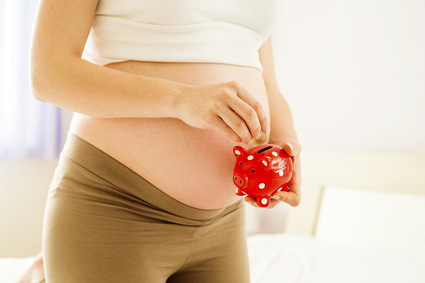Recently published statistics estimate that the cost of rearing a kid from birth to twenty one years old may very well be up to £200,000. We will assume that you are in an IVA and turn out to be pregnant. The prospect of attempting to continue your IVA during your pregnancy and especially after the birth of your child might be a problematic one. The undoubted happiness of getting a new baby has got to be tempered with the inescapable fact that monetary challenges may very well escalate. Nevertheless, plenty of consumers in IVAs have skillfully overcome the difficulties presented in these particular situations.
The first thing to understand is that your IVA will not automatically fail simply because you will be having a baby. Naturally, your financial circumstances will alter – several times – during your being pregnant, at the time of the birth, in the months following the birth and when you return to work, providing that indeed you do intend to return to work. For a start, your earnings will probably reduce when you cease working. This of course is based on the terms of your work. Your agreement may perhaps provide for your entire salary or a large portion of it to be paid out while you are on maternity leave. However, for a lot of people, this will not be the case.

Assuming you take maternity leave of nine months then your weekly maternity pay for the first six weeks of absence is made up of 90% of your average gross income. Let us say that the amount you get is £X gross per week. Your average gross income is what you earned in the eight weeks immediately prior to the commencement of your maternity leave. For the outstanding thirty three weeks of maternity leave, your weekly gross income is the lesser of £X or £124.88, currently the legal maternity allowance paid out by the state. Notice that these sums are gross and are subject to taxation and national insurance deductions. As explained previously, some companies provide solid other schemes relating to maternity leave but the norm is as outlined above. When and if you get back to the job then your salary will normally revert to what you were getting prior to your maternity leave. Your wages may also rise if you become eligible to receive tax credits or if you obtain an increase in your current tax credits. You should make an application for these immediately if there is any decrease in earnings. Tax credits are likely to be paid out retrospectively to the time the application is made so it’s vital to claim right away. Child benefit is also payable once your baby is born so it is important to claim as soon as practicable.
Now let’s look at expenditure. Your various everyday expenditures may rise or diminish but in general your costs will rise. For instance, the cost of foodstuffs will grow for the reason that you have another mouth to feed and of course heating expenses are likely to go up. On the other hand there may be a temporary lowering in the cost of transport to work. You will incur the additional costs of clothes and nappies for your child. When the duration of maternity leave is finished, other new expenses may kick in such as the costs of a crèche or other sorts of childcare, if you return to work. If you have extended family who are willing to assist, some of these new expenses can be perhaps lessened somewhat.
There is no need to panic if you find yourself pregnant. Tell the supervisor of your IVA straight away so that your IVA can be adapted to your changing circumstances and be properly supervised. It may be that your supervisor will approve a short-term payment break or reduction in payments or otherwise look to alter the conditions of your IVA by agreeing variation plans with your lenders. Although lenders have the final say, having a baby should not be a obstacle to a successful conclusion of your arrangement. To modify an traditional expression – ‘where there’s (new) life, there’s (blank).